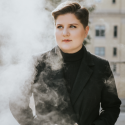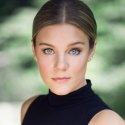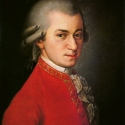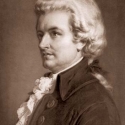Così fan tutte

|
Caitlin GotimerFiordiligi April 8, 10, & 16 |
"Gotimer is a force of nature on stage… Her soaring vocal range and the depth of her acting establish Juliette as the driving force of the affair." — Broadway World
This summer, Gotimer makes her European debut as Donna Anna in Don Giovanni with Deutsche Oper Berlin. She also makes her debut as the Countess in The Marriage of Figaro as a Renée Fleming Artist at the Aspen Music Festival, and she covers Musetta in La Bohème with the Bravo Vail Music Festival. Later, in the 2024/25 Season, Gotimer debuts in Pagliacci (Nedda) with Pittsburgh Opera; La fiamma (Silvana cover and La Voce) with Deutsche Oper Berlin; and La Bohème (Mimi) with Arizona Opera.
In the 2023/24 Season, Gotimer made her debut as Juliette in Gounod’s Roméo & Juliette with Arizona Opera, her Palm Beach Opera and Dayton Opera debuts as Tosca, and her Santa Fe Symphony debut as the soprano soloist in Handel’s Messiah. In the 2022/23 Season, Gotimer debuted as Tosca with Arizona Opera, made her Dallas Opera debut as Fiordiligi in Così fan tutte, and joined The Santa Fe Opera's Apprentice Program, where she covered Tosca.
In her residency with the Marion Roose Pullin Arizona Opera Studio, Gotimer made main stage debuts in Carmen (Micaëla), Così fan tutte (Fiordiligi), and A Little Night Music (Mrs. Anderssen). During her tenure as a resident artist with Pittsburgh Opera, she appeared as the title role in Handel’s Alcina, Elettra in a reimagining of Mozart’s Idomeneo, and covered Mimì in Puccini's La Bohème. With Crested Butte Opera Studio, Gotimer performed as Lauretta in Gianni Schicchi and Musetta in La Bohème. Other roles in Gotimer’s repertoire include the title role in Suor Angelica and Magda in La Rondine. In concert, Gotimer was a soloist in Mozart’s Requiem in D minor at the Festival Songe d’été en musique in Québec and Bach’s Missa Brevis in F with Binghamton University.
Gotimer won two top awards in the YPO/Florida Grand Opera Voice Competition and was the district winner of the 2022 Metropolitan Opera’s Laffont Competition. She was a semifinalist in both the 2022 Vincerò Competition and the 2020 Houston Grand Opera Eleanor McCollum Competition, a finalist in the 2020 Pittsburgh Festival Opera’s Mildred Miller Competition, the Second Prize and Audience Favorite Award winner at the 2017 Opera Guild of Dayton Competition, the recipient of the Italo Tajo Award in CCM’s 2017 Corbett Competition, and the winner of the 2015 National Biennial Collegiate Voice Competition hosted by NFMC.
Gotimer holds a Master of Music degree from the University of Cincinnati College-Conservatory of Music and she received her Bachelor of Music in Voice from Binghamton University.

|
Kaitlyn SabrowskyFiordiligi April 9 & 17 |
American soprano and Phoenix resident Kaitlyn Sabrowsky (nee Johnson) is at home in operatic repertoire ranging from classical to contemporary. Sabrowsky completed two seasons as a Marion Roose Pullin Arizona Opera Studio Artist from 2018-20, highlighted by back-to-back main stage leading roles as Musetta in La Bohème and Jane Withersteen in Riders of the Purple Sage in the company’s 2020 season. Her Jane garnered praise for her “strong dramatic voice and the kind of acting skills that showed her character’s growth from one scene to the next” (Operawire). Other Arizona Opera role highlights include Miss Lightfoot in Fellow Travelers and Doris Parker in Charlie Parker’s Yardbird. Additional notable engagements include her debut with The Phoenix Symphony and as Frasquita in the Atlanta Opera’s Carmen. Often celebrated on the operatic stage for her "powerful and dramatic soprano," (The Bloomington Herald-Times), Sabrowsky has appeared in such roles as Donna Anna in Don Giovanni and the title role in Catán’s Florencia en el Amazonas. Kaitlyn Sabrowsky is the recipient of awards from the Orpheus Vocal Competition, the Metropolitan Opera National Council Auditions, the Georgina Joshi International Fellowship from Indiana University and the Farb Family Outstanding Graduate Award from Rice University. She is a graduate of Indiana University (MM) and Rice University (BM, cum laude), and is an alumnus of the Institute for Young Dramatic Voices, Aspen Opera Center and Houston Grand Opera’s Young Artist Vocal Academy. Sabrowsky is currently completing her doctoral degree at Arizona State and is an active voice teacher throughout the Valley, teaching students at Grand Canyon University and privately through the Sabrowsky Song Studio.

|
Katherine BeckDorabella April 8, 10, & 16 |
Hailed by the Boston Globe as “balmy-voiced” and for her “uniformly excellent” performances, mezzo-soprano Katherine Beck returns to Rossini in the 2025/26 Season, making a debut at Opera Philadelphia as Marquise Melibea in Il viaggio a Reims and returning to Arizona Opera as Angelina in La Cenerentola. Last season, she returned to Rosina in The Barber of Seville with Minnesota Opera as well as to the Nashville Symphony for Handel’s Messiah and joined Odyssey Opera as Myrrhine in Adamo’s Lysistrata in the 2024/25 Season.
In recent seasons, she made her first return to Arizona Opera for Dorabella in Così fan tutte and subsequently to create the role of Elizabeth Lavenza in the World Premiere of Kallor’s Frankenstein. She sang Rosina in The Barber of Seville with Florentine Opera, joined the Opera Festival of Chicago as Isabella in Rossini’s rarely-performed L’inganno felice, and sang her first performances of Lola in Cavalleria rusticana with James Gaffigan conducting the Saint Louis Symphony Orchestra. She also joined the Lyric Opera of Chicago for its productions of Le comte Ory and La Cenerentola, Metropolitan Opera for Akhnaten, and Dallas Opera for Così fan tutte. Her recent concert performances include Handel’s Messiah with the Florida Orchestra
She made her debut with the Lyric Opera of Chicago whilst a member of the Ryan Opera Center as Wellgunde in Twilight: Gods, a reimagining of the final chapter of Wagner’s Der Ring des Nibelungen. She also joined Music Director Enrique Mazzola for songs of Donizetti and Verdi on the "Sole e Amore" digital recital program, sang excerpts of Marquise Melibea in Il viaggio a Reims on the Rising Stars Concert and of the title role of Carmen at “Sunday in the Park” at Millennium Park, and performed repertoire from classical to jazz to Broadway on concerts online and via WFMT.
She is also an alumna of the Marion Roose Pullin Opera Studio and has previously sung Cherubino in The Barber of Seville, Mary Johnson in Spears’ Fellow Travelers, Flora in La Traviata, Madeleine Audebert in Puts’ Silent Night, and Catherine Wright in Hagen’s Shining Brow with the company. Beck made her Santa Fe Opera debut as Karolka in Jenůfa while an Apprentice Artist and sang her first performances of Sesto in Giulio Cesare with Pittsburgh Festival Opera. She recently joined Opera Buffs in Los Angeles as Angelina in La Cenerentola following earlier performances of Mercedes in Carmen. With Opera Colorado, she created the role of Lisette in Cohen’s Steal a Pencil for Me with Opera Colorado and sang previous performances of La Cenerentola in student performances.
She has partnered with pianist Craig Terry in recital for Florentine Opera, SUNY Potsdam, and in Vermont. She is a two-time Vocal Arts Fellow of the Tanglewood Music Center, at which she was able to indulge her love for art song and chamber music. In the summer of 2018, she premiered Gandolfi’s In America, composed in commemoration of Bernstein’s Songfest, with orchestra. Also there, she sang a recital of French chanson with Roger Vignoles and a concert celebrating humor in music with Stephanie Blythe and Dr. Alan Smith. Elsewhere on the concert stage, she has sung excerpts of La clemenza di Tito with the Phoenix Symphony Orchestra on its Mozart and Schubert Chamber Festival, Mozart’s Requiem at Scripps College, Mendelssohn’s Elijah at Williams College, and Handel’s Messiah for many consecutive years in Arlington, Vermont. She has also been featured at the oldest church in New England in her hometown of Bennington, Vermont, singing Bach’s Geist und Seele wird verwirret, BWV 35 and Vergnügte Ruh, beliebte Seelenlust, BWV 170. In the crossover realm, she joined the Boston Pops both at Symphony Hall and Tanglewood for the premiere of Sondheim and Lapine’s Sondheim on Sondheim.
Beck is a winner of the prestigious George London Foundation Award, the LuminArts Vocal Fellowship in Chicago, and second place in the Annapolis Opera Vocal Competition. She is also a former semi-finalist of the Metropolitan Opera National Council Auditions. She earned her Master of Music degree from the Thornton School of Music at the University of California, at which she sang Béatrice in Béatrice et Bénédict and Sesto in La clemenza di Tito, and her Bachelor of Music degree from the Crane School of Music at the State University of New York at Potsdam.

|
Mack WolzDorabella April 9 & 17 |
Named a 2019 Grand Finals Winner by the Metropolitan Opera National Council Auditions, rising American mezzo-soprano Mack Wolz joined Arizona Opera as a member of the Marion Roose Pullin Opera Studio for the 2020/21 Season. Praised by Opera News for a “keen sense of character,” Wolz covered the role of Addison in the world premiere of The Copper Queen and was seen as Mercèdes in Carmen. On the concert stage, engagements included debuts with the Phoenix Symphony, performing Handel’s Messiah and Beethoven’s Ninth Symphony, and Opera Edwardsville, presenting a program of Renaissance and Baroque motets with renowned harpsichordist Jory Vinikour.
Previously, Wolz joined pianist Steven Blier in the New York Festival of Song “Killer B’s” tour, performing the concert at the Tucson Desert Song Festival, the Century Club in New York City, and Ohio University in Athens, Ohio.
Wolz has spent several summers with Opera Theatre of Saint Louis, taking part in their Gerdine Young Artist and Gaddes Festival Artist programs. The performance in The Coronation of Poppea was highlighted by Opera News for a “creamy mezzo and mischievous spark as Amore.”
Wolz trained at the Boston Conservatory, where numerous mainstage performances were lauded for their “immense skill in both solo and ensemble singing” and for a “radiant” voice (the Boston Musical Intelligencer).

|
Bille BruleyFerrando April 8, 10, & 16 |
Praised by the Huffington Post for his “ringing high notes,” Texas-born tenor Bille Bruley has garnered attention for his strength and versatility in operatic repertoire from baroque to contemporary.
Bille’s 21/22 season is highlighted by role/house debuts in Mason Bates and Mark Campbell’s The (R)evolution of Steve Jobs (Steve Wozniak) with Austin Opera, Lyric Opera of Kansas City, and The Atlanta Opera. He will also return to Arizona Opera for Così fan tutte (Ferrando).
Recently he joined the roster of Lyric Opera of Chicago Dead Man Walking to cover Father Grenville and Howard Boucher and returned to Arizona Opera for Shining Brow (Louis Sullivan) and Riders of the Purple Sage (Bern Venters). Highlights from previous seasons include Britten’s War Requiem with the Tulsa Symphony, a program of Mozart arias with the Phoenix Symphony, and a return to The Santa Fe Opera, where he created the role of Benjamin in the world premiere of Poul Ruders’ The Thirteenth Child.
Bille Bruley hails from Montgomery, Texas and is a graduate of Indiana University’s Jacobs School of Music and Baylor University.

|
Terrence Chin-LoyFerrando April 9 & 17 |
American tenor Terrence Chin-Loy, whom Opera News described as having a "beautiful lyric tenor voice” pairs passionate performance with a full, sweet sound. In the 2024/25 Season, Chin-Loy made his European debut singing Gualtiero in Vivaldi’s Griselda with the Danish National Opera, return to the Lyric Opera of Chicago for Cop 1 in Blue, Ferrando in Così fan tutte with Virginia Opera, Don Ottavio in Don Giovanni with Opera Omaha and in concert, Graf Albert in Die tote Stadt with Andris Nelsons and the Boston Symphony Orchestra.
In the 2023/24 Season, Chin-Loy returned to Arizona Opera to sing Roméo in Roméo & Juliette and Victor Frankenstein the World Premiere of Frankenstein. With LA Opera, Chin-Loy sang Pang in Turandot and with Virginia Opera, the tenor solos in Paul Moravec’s Sanctuary Road. In concert, Chin-Loy joined the Lubbock Symphony for Haydn’s Creation.
Highlights of recent seasons include Chin-Loy’s solo debut at The Metropolitan Opera in Terence Blanchard's Fire Shut Up In My Bones, Tamino in The Magic Flute with the National Taichung Theater in Taiwan and at Arizona Opera, Don José in Carmen with MasterVoices at Lincoln Center, Henrik Egerman in A Little Night Music and Ferrando in Così fan tutte with Arizona Opera, and Benny Paret Jr. in Boston Lyric Opera’s production of Champion. In concert, Chin-Loy performed and recorded Taneyev’s At the Reading of a Psalm with the American Symphony Orchestra and Leon Botstein at Carnegie Hall, the North Carolina Symphony for Mozart’s Requiem, the Caramoor Festival for an Independence Day celebration concert, the Boise Philharmonic for a performance of Hailstork’s I Will Life Mine Eyes as well as a residency with the College of Idaho.
Chin-Loy 's favorite roles include Idomeneo in Idomeneo: afterWARds (Pittsburgh Opera), director David Paul's retelling of Mozart's masterpiece with the composer's original music, Edgardo in Donizetti’s Lucia di Lammermoor (Indiana University) and Younger Thompson in Tom Cipullo's Glory Denied (Pittsburgh Opera, Penn Square Music Festival). He was happy to make his Carnegie Hall debut in Handel's Messiah in the 2018/19 Season.
Chin-Loy is a graduate of Indiana University, where he received a Performer Diploma. He also holds degrees from Mannes College and Yale University. At Mannes, he performed the roles of Laurie in Mark Adamo's Little Women and Bill in the New York premiere of Jonathan Dove's Flight with Mannes Opera, and received the Michael Sisca Opera Award, the school's top prize for an opera singer. Chin-Loy holds a BA in Music from Yale University, where his studies concentrated on Music Theory and Musicology. While at Yale, Chin-Loy was also a frequent performer with the Yale Baroque Opera Project, with which he performed major roles in La Calisto, Il Ritorno d’Ulisse in patria and Scipione affricano. He is a 2018 Metropolitan Opera National Council Auditions National Semifinalist.

|
Jarrett PorterGuglielmo April 8, 10, & 16 |
Praised for his “imposing baritone” and “supple vibrant baritone that he deploys with unaffected lyricism and manifest honesty” by Opera News, American baritone Jarrett Porter is quickly making a name for himself with a fearless talent and commanding intellect. Porter is currently a member of the Artist Diploma in Opera Studies at The Juilliard School.
In the 2020/21 Season, Jarrett makes his professional debut at Opera Theatre of Saint Louis as Neil Armstrong in the world premiere of Steve Mackey’s Moon Tea, and as the Adjudicator in the world premiere of Damien Sneed’s The Tongue & The Lash. He joins Internationale Meistersinger Akademie in Neumart, Germany where he will make appearances on Bavaria Radiofunk, as well as with the Nürnburg Symphony. At Juilliard, he appears in their Liederabend series, with New York Festival of Song@Juilliard, and as Polyphemus in Händel’s Acis & Galatea with Juilliard415.
In the 2021/22 Season he looks forward to making his professional debut at Arizona Opera as Guglielmo in Così fan tutte. He will return to Opera Theater of Saint Louis to create the role of Oliver Sacks in the world premiere of Tobias Picker’s Awakenings, based on the memoir of the same name.
Porter’s 2019/20 Season included his principal debut at Tulsa Opera as Dancaïre in Carmen. At the Santa Fe Opera in his second year as an Apprentice, he sang the Sergeant in La boheme, covered Guglielmo in Così fan tutte, appeared in scenes as the title role in Il barbiere di Siviglia, and joined Renée Fleming and the Santa Fe Opera Orchestra under the baton of Harry Bicket as a soloist in Vaughan Williams’ Serenade to Music.
In the 2018/19 Season he finished his second and final year as a Marion Roose Pullin Studio Artist at Arizona Opera, where he performed as Antonio and the cover of Count Almaviva in Le nozze di Figaro, Father Palmer in Silent Night, and Baron Douphol in La traviata. In the 2017/18 Season at Arizona Opera, he was seen as the title role in Patrick Morganelli’s Hercules vs. Vampires, Maximilian in Candide, Sciarrone in Tosca, and Fiorello in Il barbiere di Siviglia. He joined Santa Fe Opera in 2018 as a member of the company’s Apprentice Program, singing Der Perückenmacher in Ariadne auf Naxos, and covering Maximilian in Candide. Role engagements elsewhere have included the title role of Don Giovanni and Eugene Onegin, Le Chevalier des Grieux in Massenet’s Le portrait de Manon, Sid in Albert Herring, Harry Easter in Weill’s Street Scene, and Morales in Carmen. Other programs include Opera Saratoga (2016) and The Glimmerglass Festival (2017), as well as Houston Grand Opera’s Young Artist Vocal Academy (2014).
As a sought after recitalist, Porter has held fellowships at the Ravinia Stean’s Music Institute at The Ravinia Festival, and at SongFest at the Hidden Valley Music Festival under the mentorship of Sir Thomas Allen and Graham Johnson. Accompanied by narration from Allen and Johnson, he made his National Public Radio debut with selections from Schubert’s Die schöne Müllerin and Winterreise, and in the spring of 2018 joined pianist Taylor Hutchinson in recital to present Winterreise in Katzin Hall at Arizona State University.
Awards include: winner of The Sullivan Foundation (2019), winner of the 2019 St. Louis District of the Metropolitan Opera National Council, the Lisa and Bernie Kalvelage Award at the 2018 Holt Competition, the 2017 Grand Prize Winner of the Pacific Music Society Competition, the Ellie Silver Award Winner at the 2017 Holt Competition, and the First Prize of the inaugural Esther C. Weill Competition. A native of coastal New Jersey, he holds a Bachelor of Music degree from the Eastman School of Music (2015) and a Master of Music from the San Francisco Conservatory of Music (2017), where he was a James Schwabacher Fellow. He can be seen in the June 2020 issue of Opera News, where he was the magazine’s Soundbite. A student of Darrell Babidge, Porter resides on the Upper East Side in New York City.

|
Rob McGinnessGuglielmo April 9 & 17 |
Recognized for his “impressive singing … well-supported tone and supple phrasing,” (Baltimore Sun) baritone Rob McGinness‘ recent venue debuts include Stern Auditorium at Carnegie Hall and the Kennedy Center Concert Hall. This season Rob joins Arizona Opera as a member of the Marion Roose Pullin Arizona Opera Studio, performing multiple roles including Schaunard in La Bohème, Harlekin in Ariadne auf Naxos and the lead role in Shining Brow, Darren Hagen’s opera about Frank Lloyd Wright. Other highlights this season include Orff’s Carmina Burana with the Maryland Symphony Orchestra.
Often featured portraying opera’s “bad boy,” Rob’s operatic credits include the title roles in Eugene Onegin and Don Giovanni, as well as Marcello in La Bohème. Rob has made a specialty in Russian repertoire, performing leading roles in Rimski-Krosakov’s Tsar’s Bride, Mozart and Salieri, Snow Maiden, Sadko as well as Tchaikovsky’s Iolanta. Other famous roles include Enrico in Lucia, Count Almaviva in The Marriage of Figaro, and Eisenstein in Die Fledermaus, a performance lauded for a “bright baritone and winning jitteriness” by the Cleveland Plain Dealer.
As a featured soloist, Rob performed Mahler’s Songs of a Wayfarer, the Duruflé Requiem with the Peabody Symphony Orchestra, and the Brahms Requiem with Portsmouth Pro Musica. Other concert credits include Carmina Burana with Columbia Pro Cantare and Brahms’s Requiem with The Washington Chorus, where Rob’s performance was lauded by the Washington Post for his “warm baritone.”
Committed to promoting and performing new works, Rob regularly premieres new roles, including Ed Wall in Frances Pollock’s award-winning opera Stinney, and Saul Hodkin/Price in The Ghost Train by Paul Crabtree. Rob’s own compositions include vocal, theatrical and orchestral pieces premiered at IngenuityFest, Andy’s Summer Playhouse, and by the Windham Orchestra in Vermont.
Rob holds degrees from Oberlin Conservatory and the Peabody Institute, and was a young artist with Pittsburgh Festival Opera, Teatro Nuovo, and Bel Canto at Caramoor. His awards include first place in the Sylvia Greene Vocal Competition, second place in the Piccola Opera Competition, and the Patricia A. Edwards Award in the Annapolis Opera Vocal Competition.

|
Mark SchnaibleDon Alfonso |
Described by Das Opernglas as “a strong, rich and warm-colored voice with assured style,” Mark Schnaible returns this season to Arizona Opera as Don Alfonso in Così fan tutte. His recent appearances include Klingsor in Parsifal with Indiana University Opera, and the title role in Bluebeard’s Castle with the Columbus Symphony, Bartolo in Le nozze di Figaro with Arizona Opera, reprise performances of Pere Joseph in the acclaimed production of Gounod’s Der Rebell des Königs (Cinq Mars) and Méphistophélès in Faust with Oper Leipzig, Musiklehrer in Ariadne auf Naxos and the Police Sergeant in Pirates of Penzance with Palm Beach Opera, and returning to the Metropolitan Opera for their new productions of Guillaume Tell and Lulu.
Schnaible’s other recent performances include Friedrich in Das Liebesverbot and Méphistophélès in Faust with Oper Leipzig with repetitions of the latter at the Teatro Comunale Bolzano, Orest in Willy Decker’s production of Elektra with Polish National Opera; Der Wanderer in Siegfried with Kent Nagano conducting and the Four Villains in Les contes d’Hoffmann in a production directed by Nicholas Joel with Den Nye Opera; Jochanaan in Salome with Edmonton Opera and Cedar Rapids Opera Theater; Escamillo in Carmen with New Orleans Opera and the Saarbrücken Radio Symphony Orchestra; Nick Shadow in The Rake’s Progress, Pizarro in Fidelio, Ferrando in Il trovatore, and the title role in Giulio Cesare with Utah Opera; Friedrich in the North American stage premiere of Das Liebesverbot and the Count in Le nozze di Figaro with Glimmerglass Opera; Biterolf in Robert Carsen’s production of Tannhäuser conducted by Seiji Ozawa at Tokyo Opera Nomori; the title role in Sweeney Todd and Scarpia in Tosca with Portland Opera, Dayton Opera, and Shreveport Opera; and Mephistofeles in Faust with Shreveport Opera and El Paso Opera.
He has sung numerous leading roles with Theater Lübeck including the Four Villains in Les contes d’Hoffmann Dr Schön in Lulu, both directed by Anthony Pilavachi as well as the title role in Der fliegende Holländer, Seven Antagonists in Death in Venice, Orest in Elektra, Pizarro in Fidelio, Capulet in Roméo et Juliette, Raimondo in Lucia di Lammermoor, and Lorenzo in I capuleti e i Montecchi. Additional recent performances include Leporello in Don Giovanni with Boston Baroque and Utah Opera; Colline in La bohème with Oper Kiel; the title role in Gianni Schicchi and Rambaldo in La rondine with Opera Tampa; Ariodate in Xerxes with Boston Baroque; Don Alfonso in Così fan tutte with Shreveport Opera; Capulet in Roméo et Juliette with New Orleans Opera; as well as the Huntsman in Rusalka with Christoph Eschenbach at the Schleswig-Holstein Music Festival and with Franz Welser-Möst at the Opernhaus Zurich. A past winner of the prestigious Marseille International Opera Competition, the bass-baritone subsequently sang Figaro in Le nozze di Figaro with Opera d’Avignon and Metz Opera and joined the Choregies d’Orange Festival under Bertrand de Billy for Baron Douphol in La traviata and for Carmen under Michel Plasson. He also also previously joined the Metropolitan Opera roster for its production of Die Meistersinger von Nürnberg.
He is equally at home with the concert repertoire having recently sung Bizet’s Clovis et Clotilde with Les Flaneries Musicales de Reims and Jean-Claude Casadesus and in subsequent performances with the same conductor and the Orchestre National de Lille (released on the Naxos label). Other concert performances include Bluebeard’s Castle with Utah Symphony and excerpts of Boito’s Mephistopheles with Dayton Opera; Brahms’ Ein deutsches Requiem with the Utah Symphony, North Carolina Symphony, and Sioux City Symphony; previous performances of Beethoven’s Symphony No. 9 with Edo de Waart conducting the Hong Kong Philharmonic, Jacques Lacombe conducting the Lorraine Philharmonic, as well as with the Nashville Symphony and Memphis Symphony Orchestra; Verdi’s Requiem with the Orchestre National d'Île de France; Saint-Saens’ Christmas Oratorio with the Winterthur Philharmonic; Beethoven’s Mass in C with the Hartford Symphony; Dvořák’s Te Deum with the Utah Symphon;, and Fauré’s Requiem with the Heidelberg Philharmonic and Lorraine Philharmonic. He has sung Bach’s St. Matthew Passion with the Lübeck Philharmonic Orchestra, St. John Passion with the Heidelberg Philharmonic, and Mass in B minor with the Würzburg Symphony Orchestra; Berlioz’s Messe Solenelle also with the Heidelberg Philharmonic and his Lélio, ou le retour à la vie with the Lübeck Philharmonic Orchestra; and Handel’s Utrecht Jubilate with the Sioux City Choral Union, Judas Maccabeus with the Octavo Singers in Albany, Messiah with the Jerusalem Symphony and El Paso Symphony; Mendelssohn’s Elijah with Seiji Ozawa conducting at the Saito Kinen Festival as well as with the Nuremberg Philharmonic Orchestra, with which he also sang the composer’s St. Paul; Mozart’s Mass in C minor with the Quad Cities Symphony, Requiem with the Harrisburg Symphony, and Vesperae Solemnes with the Buena Vista Symphony; and Haydn’s The Creation with the Jerusalem Symphony Orchestra conducted by David Stern and Utah Symphony conducted by Jeffrey Kahane and The Seasons with the Poitou-Charentes Orchestre. He also joined the Sioux City Chamber Music Association in his home state of Iowa for a recital of Brahms’ Vier ernste Gesänge in addition to works by Handel, Duparc, and Kohn.

|
Cadie J. BryanDespina |
A former Marion Roose Pullin Arizona Opera Studio Artist, Louisiana-born soprano Cadie J. Bryan has been praised by Opera News as “sparkling” and “pertly pealing”. Recent highlights include a number of house debuts including The Dallas Opera in concert for the Hart Institute for Women Conductors, Opera Las Vegas as Addie Mills in the west coast premiere of Ricky Ian Gordon’s The House Without a Christmas Tree, and The Atlanta Opera as Berta in The Barber of Seville, as well as a return to Arizona Opera to reprise the role of Despina.
In the summer of 2021, she debuted the roles of Clarine in Rameau's Platée under the baton of Gary Thor Wedow, and Prilepa in Queen of Spades as an Ensemble Artist at Des Moines Metro Opera. Prior to the COVID-19 shut down, she was slated to sing the role of Naiade in Ariadne auf Naxos at Arizona Opera where she completed two years as a Marion Roose Pullin Studio Artist (2018-2020). In her final season, she performed four main stage roles including Bess in Craig Bohmler’s Riders of the Purple Sage, Musetta in La Bohème, Lucy in Fellow Travelers, and Maid in the Taliesin West Premier of Daron Hagen’s Shining Brow.
In her 2018-2019 season, she made her main stage debut at Arizona Opera as Chan Parker in Daniel Schnyder's and Bridgette Wimberly’s Charlie Parker’s Yardbird, as well as Annina in La Traviata, and Susanna in Le nozze di Figaro. As an apprentice artist at Des Moines Metro Opera, she made her main stage debut as the Second Wood Sprite in an Emmy Award-winning production of Rusalka (2017).
Bryan is an alumnus of Ravinia’s Steans Institute for singers (2017, 2018) where she studied and performed in a variety of art song and Lieder recitals with world-renowned pianists and coaches. Other career highlights include Clara in Jake Heggie’s and Gene Scheer's It’s A Wonderful Life (2017), Marian in The Music Man (2017), Zerlina in Don Giovanni (2014), and Lisette in La Rondine (2014).
She received a Master of Music and a Performance Diploma from the Indiana University Jacobs School of Music under the tutelage of soprano Heidi Grant Murphy and her Bachelor of Music from Louisiana State University with baritone Dennis Jesse.

|
Wolfgang Amadeus MozartComposer |
Wolfgang Amadeus Mozart was born on January 27, 1756, in Salzburg, Austria. Mozart's father, Leopold Mozart, a noted composer, instructor, and the author of famous writings on violin playing, was then in the service of the archbishop of Salzburg. Leopold and Anna Maria, his wife, stressed the importance of music to their children. Together with his sister, Nannerl, Mozart received such intensive musical training that by the age of six he was a budding composer and an accomplished keyboard performer. In 1762 Leopold presented his son as performer at the imperial court in Vienna, Austria, and from 1763 to 1766 he escorted both children on a continuous musical tour across Europe, which included long stays in Paris, France, and London, England, as well as visits to many other cities, with appearances before the French and English royal families.
Mozart was the most celebrated child prodigy of this time as a keyboard performer. Mozart also made a great impression as a composer and improviser. In London, Mozart won the admiration of musician Johann Christian Bach (1735–1782), and was exposed from an early age to an unusual variety of musical styles and tastes across Europe.
From the age of ten to seventeen, Mozart's reputation as a composer grew to a degree of maturity equal to that of most older established musicians. Mozart spent the years from 1766 to 1769 at Salzburg writing instrumental works and music for school dramas in German and Latin, and in 1768 he produced his first real operas: the German Singspiel Bastien und Bastienne. Despite his growing reputation, Mozart found no suitable post open to him; and his father once more escorted Mozart, at age fourteen (1769), and set off for Italy to try to make his way as an opera composer.
In Italy, Mozart was well received: in Milan, Italy, he obtained a commission for an opera; in Rome he was made a member of an honorary knightly order by the Pope; and at Bologna, Italy, the Accademia Filarmonica awarded him membership despite a rule normally requiring candidates to be twenty years old. During these years of travel in Italy Mozart produced his first large-scale settings of opera seria: Mitridate (1770), Ascanio in Alba (1771), and Lucio Silla (1772), as well as his first string quartets. At Salzburg in late 1771 Mozart renewed his writing of Symphonies (Nos. 14–21).
Paris was a vastly larger theater for Mozart's talents. His father urged him to go there, for "from Paris the fame of a man of great talent echoes through the whole world," he wrote his son. But after nine difficult months in Paris, from March 1778 to January 1779, Mozart returned once more to Salzburg, having been unable to secure a foothold and depressed by the entire experience, which had included the death of his mother in the midst of his stay in Paris. Unable to get hired for an opera, Mozart wrote music to order in Paris, again mainly for wind instruments: the Sinfonia Concertante for four solo wind instruments and orchestra, the Concerto for flute and harp, other chamber music, and the ballet music Les Petits riens. In addition, Mozart began giving lessons to make money.
Mozart's years in Vienna, from age twenty-five to his death at thirty-five, cover one of the greatest developments in a short span in the history of music. In these ten years Mozart's music grew rapidly beyond the realm of many of his contemporaries; it exhibited both ideas and methods of elaboration that few could follow, and to many, the late Mozart seemed a difficult composer.
The major instrumental works of this period bring together all the fields of Mozart's earlier activity and some new ones: six symphonies, including the famous last three: no. 39 in E-flat Major, no. 40 in G Minor, and no. 41 in C Major (the Jupiter —a title unknown to Mozart). Mozart finished these three works within six weeks during the summer of 1788, a remarkable feat even for him.
In the field of the string quartet Mozart produced two important groups of works that completely overshadowed any he had written before 1780: in 1785 he published the six Quartets (K. 387, 421, 428, 458, 464, and 465) and in 1786 added the single Hoffmeister Quartet (K. 499). In 1789 he wrote the last three Quartets (K. 575, 589, and 590), dedicated to King Frederick William (1688–1740) of Prussia, a noted cellist.
Mozart's development as an opera composer between 1781 and his death is even more remarkable, perhaps, since the problems of opera were more far-ranging than those of the larger instrumental forms and provided less adequate models. The first important result was the German Singspiel entitled Abduction from the Seraglio (1782). Mozart then turned to Italian opera. Mozart produced his three greatest Italian operas: The Marriage of Figaro (1786), Don Giovanni (1787), and Cosi fan tutte (1790). In his last opera, The Magic Flute (1791), Mozart turned back to German opera and produced a work combining many strands of popular theater and including musical expressions ranging from folk to opera.
On concluding The Magic Flute, Mozart turned to work on what was to be his last project, the Requiem. This Mass had been commissioned by a benefactor said to have been unknown to Mozart, and he is supposed to have become obsessed with the belief that he was, in effect, writing it for himself. Exhausted, Mozart managed to finish the first two movements and sketches for several more, but the last three sections were entirely lacking when he died. It was completed by his pupil Franz Süssmayer after his death, which occurred in Vienna, Austria, on December 5, 1791.

|
Lorenzo Da PonteLibrettist |
Lorenzo Da Ponte was born Emanuele Conegliano in 1749 in Ceneda, in the Republic of Venice (now Vittorio Veneto, Italy). Da Ponte was Jewish by birth and the eldest of three sons. In 1764, Da Ponte's father, Geronimo Conegliano, then a widower, converted himself and his family to Roman Catholicism in order to marry a Catholic woman. Emanuele, as was the custom, took the name of Lorenzo Da Ponte from the Bishop of Ceneda who baptized him.
Thanks to the bishop, the three Conegliano brothers studied at the Ceneda seminary. The bishop died in 1768, after which Da Ponte moved to the seminary at Portogruaro, where he took Minor Orders in 1770 and became Professor of Literature. Da Ponte was ordained a priest in 1773 and began writing poetry in Italian and Latin, including an ode to wine, "Ditirambo sopra gli odori".
In 1773 Da Ponte moved to Venice, where he made a living as a teacher of Latin, Italian, and French. Although he was a Catholic priest, the young Da Ponte led a dissolute life. While priest of the church of San Luca, Da Ponte took a mistress, with whom he had two children. At Da Ponte's 1779 trial, where he was charged with "public concubinage" and "abduction of a respectable woman," it was alleged that he had been living in a brothel and organizing the entertainments there. Da Ponte was found guilty and banished for fifteen years from Venice.
Lorenzo Da Ponte moved to Gorizia, then part of Austria, where he lived as a writer, attaching himself to the leading noblemen and cultural patrons of the city. In 1781 Da Ponte falsely believed that he had an invitation from his friend Caterino Mazzolà, the poet of the Saxon court, to take up a post at Dresden, only to be disabused when he arrived there. Mazzolà however offered Da Ponte work at the theatre translating libretti and recommended that he seek to develop writing skills. He also gave Da Ponte a letter of introduction to the composer Antonio Salieri.
With the help of Salieri, Da Ponte applied for and obtained the post of librettist to the Italian Theatre in Vienna. Here Da Ponte also found a patron in the banker Raimund Wetzlar von Plankenstern, benefactor of Wolfgang Amadeus Mozart. As court poet and librettist in Vienna, Da Ponte collaborated with Mozart, Salieri, and Vicente Martín y Soler. Da Ponte wrote the libretti for Mozart's most popular Italian operas, The Marriage of Figaro (1786), Don Giovanni (1787), and Così fan tutte (1790), and Soler's Una cosa rara, as well as the text on which the cantata Per la ricuperata salute di Ofelia (collaboratively composed in 1785 by Salieri, Mozart, and Cornetti) is based. All of Da Ponte's works were adaptations of pre-existing plots, as was common among librettists of the time, with the exceptions of L'arbore di Diana with Soler, and Così fan tutte, which he began with Salieri, but completed with Mozart. However the quality of Da Ponte elaboration gave them new life.
In the United States, Da Ponte settled in New York City first, then Sunbury, Pennsylvania, where he briefly ran a grocery store and gave private Italian lessons. Da Ponte returned to New York to open a bookstore. Da Ponte became friends with Clement Clarke Moore, and, through him, gained an unpaid appointment as the first professor of Italian literature at Columbia College. In New York Da Ponte introduced opera and produced in 1825 the first full performance of Don Giovanni in the United States, in which Maria García (soon to marry Malibran) sang Zerlina. Da Ponte also introduced Gioachino Rossini's music in the United States, through a concert tour with his niece Giulia Da Ponte.
Lorenzo Da Ponte died in 1838 in New York.

|
Karen KamensekConductor |
Karen Kamensek’s remarkable versatility and expansive artistry, coupled with her deep commitment to championing many of the leading compositional voices of the 20th and 21st century, is reflected in her work in both the opera house and on the concert stage. Last season alone, she made her long-awaited Metropolitan Opera debut with Glass’ Akhnaten—a production, under her direction, that recently won the coveted Olivier Award in London—as well as debuts with the Malmö Symphony Orchestra and the Hungarian National Philharmonic Orchestra conducting works by Pépin and Takemitsu, respectively.
While the ongoing pandemic continues to impact Ms. Kamensek’s 2020/21 Season, she is currently scheduled to lead performances in Sweden, Austria, France and the US. In the fall, she will be making her debut with the Helsingborg Symphony Orchestra leading a program that features Osvaldo Golijov’s Three Songs for Soprano and Orchestra, with Sanna Gibbs as soloist; Aaron Jay Kernis’ Musica Celestis for Strings; and Joseph Canteloube’s Selection from Songs of the Auvergne. In Austria, with the Tyrolean Symphony Orchestra, she will conduct three concerts that include Beethoven’s Concerto for Piano and Orchestra No. 5 in E flat major Op.73, with Lise de la Salle as soloist, and the Austrian premiere of Fazil Say’s Symphonic Dances. Camille Pépin’s Laniakea; R. Strauss’ Intermezzo – Quatre Interludes symphoniques; and Wagner’s Wesendonck Lieder, with soprano Elza van den Heever as soloist, and his Prélude and Liebestod are on the program for her performance with Orchestre National Montpellier Occitanie. In winter 2021, she will travel to the United States to lead a powerful program that features two of today’s leading female voices in contemporary music, Joan Tower (Fanfare for the Uncommon Woman) and Jennifer Higdon (Concerto for Orchestra) when she makes her debut with the Charlotte Symphony. Rachmaninoff’s Piano Concerto No. 3, with pianist Joyce Yang, is also on the program.
Kamensek served as the Music Director of the Staatsoper Hannover from 2011-2016. She has also served as the 1st Kapellmeister at the Volksoper Wien (2000-2002), Music Director of the Theater Freiburg (2003-2006), Interim Music Director at the Slovenian National Theatre in Maribor (2007-2008), and Associate Music Director at Staatsoper Hamburg (2008-2011).
Frequently in demand as a guest conductor with many of today’s most prominent opera companies and orchestras, Kamensek’s recent opera highlights include her debut and return performances with the English National Opera in Glass’ Akhnaten; her debut with the San Francisco Opera conducting a new production of Floyd’s Susannah with soprano Patricia Racette; and the Royal Swedish Opera’s production of Victoria Borisova-Ollas’ Dracula.
Recent orchestral highlights include a focus on living-composer Thea Musgrave for Kamensek’s debut with the Royal Stockholm Philharmonic as part of their highly-lauded Composer Festival; a live-to-film performance of Miloš Forman's iconic Oscar-winning film, Amadeus, marked her debut with the Oslo Philharmonic; and performances of Philip Glass’/Ravi Shankar’s collaboration Passages with master sitar player, Anoushka Shankar, outlined her first performances leading the Britten Symphonia in Royal Albert Hall as part of the BBC Proms as well as the Orchestre Chambre de Paris in the Paris Philharmonie.
Kamensek regularly collaborates with singers, directors, and instrumentalists from across the globe. She has worked with many renowned singers, including Joseph Calleja, Anthony Roth Costanzo, Andrzej Dobber, Elza van den Heever, Brandon Jovanovich, Lise Lindstrom, Ambrogio Maestri, Thomas Johannes Mayer, Patricia Racette, Stuart Skelton and Klaus Florian Vogt. She has partnered with such groundbreaking directors as Guy Joosten, Harry Kupfer, Uwe Eric Laufenberg, Phelim McDermott, and Olivier Tambosi. She has led performances featuring critically-acclaimed instrumentalists such as Michael Barenboim, Gautier Capuçon, Renaud Capuçon, David Aaron Carpenter, Lynn Harrell, Louis Lortie, Olli Mustonen, Ida Nielsen, Benjamin Schmid and Tanja Tetzlaff.

|
E. Loren MeekerStage Director |
E. Loren Meeker is a stage director whose work has been seen at leading companies across the United States, South America, Asia, and Europe. In November of 2019, she was named General & Artistic Director of Opera San Antonio, having previously served as Artistic Advisor at that company.
A diverse artist whose background in dance and theatre allows her to bring a unique vision to her work, Loren has received critical acclaim for recent productions of Carmen at Washington National Opera and Lucia di Lammermoor at New Orleans Opera. Tim Smith, of Opera News wrote "There was nothing routine about the production of Carmen at the Kennedy Center Opera House. Attractively cast, fluently directed by E. Loren Meeker and incisively conducted by Evan Rogister, the venture crackled with energy from the top of the Prelude to Act I." Theodore P. Mahne of the Times-Picayune titled his review of Lucia, “ 'Lucia di Lammermoor’ more than a mad scene in director’s strong vision”. He went on to say, “Meeker's concept behind this weekend's production is to transfer Sir Walter Scott's Scottish tale from the late 16th-century House of Stuart to the period roughly of ‘Downton Abbey’: Edwardian Britain. The result is both a theatrical and musical success, a production filled with vitality.”
Meeker’s planned engagements during the COVID-19 impacted 2020/21 Aeason include Cosmic Cowboy with White Snake Projects (postponed), Le nozze di Figaro with Austin Opera (postponed), and Rigoletto with Washington National Opera (cancelled). For Houston Grand Opera, she will direct a pair of filmed productions for streaming on Marquee.tv: David T. Little and Royce Vavrek’s Vinkensport (co-directed with Ryan McKinny) and Mozart’s The Impresario.
During the COVID-19 shortened 2019/20 Season, Meeker directed Tosca for Opera San Antonio (completed), followed by productions of Madama Butterfly with Portland Opera (completed) and Florida Grand Opera (completed). She made her debut at Washington National Opera directing their production of Don Giovanni (performance run interrupted by pandemic), and was meant to close the season with Rigoletto at Opera San Antonio (cancelled) and directing the Apprentice Scenes at Santa Fe Opera (cancelled).
The previous season, Meeker directed a new production of Turandot for New Orleans Opera, directed Les pêcheurs de perles and remounted Zambello’s Florencia en el Amazonas for Houston Grand Opera, and directed a new production of Susannah for Rice University. She directed a new production of Lohengrin at Opera Southwest, at Boston University she directed The Cunning Little Vixen, and co-directed a new production of Show Boat with Francesca Zambello at The Glimmerglass Festival.
Her most recent credits include The Cunning Little Vixen (The Glimmerglass Festival), Rigoletto (Lyric Opera of Chicago), Daughter of the Regiment (Atlanta Opera), La pietra del paragone (Wolf Trap Opera), La bohème (Opera San Antonio, The Glimmerglass Festival, San Diego Opera), Amleto (Opera Delaware), Show Boat and Manon (The Dallas Opera), Die Fledermaus (Lyric Opera of Chicago, San Francisco Opera, New Orleans Opera), Manon Lescaut (Singapore Lyric Opera), Manon (Teatro Colón), Madama Butterfly (North Carolina Opera), Carmen and L'elisir d'amore (Finger Lakes Opera), and Cendrillon and Vinkensport, or the Finch Opera (Boston University Opera Institute). In addition to her work with standard repertoire, Loren has directed five world premieres for Houston Grand Opera (HGOco) and Jason and the Argonauts for Lyric Opera of Chicago (Lyric Unlimited).
Loren has been on the directing staff at some of the most prestigious opera companies in the nation including Lyric Opera of Chicago, San Diego Opera, Houston Grand Opera, Florida Grand Opera, and Central City Opera where she was the 2006 recipient of the John Moriarty Award. These opportunities have allowed her to work with many distinguished directors who have greatly influenced her career, such as Sir David McVicar and Francesca Zambello.
While in residence at Central City Opera Loren was able to lend her talents as a movement teacher and choreographer. Her work as a choreographer has also been seen at Glimmerglass Festival (Orpheus in the Underworld), Houston Grand Opera (Le Nozze di Figaro, Don Giovanni), and Opera Boston (La Vie Parisienne).
Loren began her training at a young age developing skills as a dancer and gymnast, later combining her talents in these disciplines with her love for acting and singing. She attended Boston University where she received a BFA, summa cum laude, in Theatre Studies (focus in directing and choreography). After graduating she began to apply her diverse background to opera.
Loren has been the recipient of numerous awards for her work. Two of Loren’s productions for the New Orleans Opera have won the Gambit “Best of Opera” award – Faust (2017) and Die Fledermaus (2015). DC Metro Theater Arts named her production of Carmen for Washington National Opera the “Best Opera of 2015”. Other awards and honors include: Lakmè, Rutgers University, first prize in Division IV of the Opera Production Competition sponsored by the National Opera Association; Cendrillon, Boston University Opera Institute, nominated for 6 "Best Of" ArtsImpluse Theatre Awards.

|
Laura Fine HawkesScenery Designer |
Laura Fine Hawkes’ work broadly encompasses scenic design for theatre, opera, and musical theatre, as well as art direction for live shows, themed visitor experiences, museum exhibits, events, and television programming. Theatrical engagements include design for Arizona Opera, Wolf Trap Opera, Utah Opera, Houston Grand Opera’s HGOco, San Francisco Opera Merola Program, Theatre Under the Stars, Stages Repertory Theatre, Center Theatre Group at The Mark Taper Forum, Big League Productions, The Geffen Playhouse, Catastrophic Theatre, Ensemble Studio Theatre Los Angeles, The Road Theatre, Circle X Theatre, NoHo Arts Ensemble, The Fountain Theatre, and a short film within Cirque du Soleil's Iris production at the Kodak Theatre, among many others. Laura has participated in the development of multiple international large scale live shows and themed visitor experiences for Thinkwell Group, Inc. and The Hettema Group, both based in the greater Los Angeles area. Laura designed the THEA award-winning Air Force One Discovery Center housed in the Air Force One Pavilion within The Ronald Reagan Presidential Library and Museum in Simi Valley, CA. Art Direction for television includes programming for NBC/Bravo, Climate Reality Project, AEG Live, Comedy Central, PBS, and the FUEL Network. Laura holds an MFA in Scenic Design from UCLA and currently serves as Head of Design for the Theatre Department at Binghamton University (SUNY.)

|
Kara HarmonCostume Designer |
Select Regional credits include: Hometown to the World, Santa Fe Opera, The Shutter Sisters, Old Globe; Darlin’ Cory, The Alliance Theater, Guys & Dolls, Steel Magnolias, Guthrie Theatre; Eclipsed, Milwaukee Rep; The Color Purple, Portland Center Stage; The Wiz!, Ford’s Theatre (Helen Hayes Award); A Raisin in the Sun, Indiana Rep; Nina Simone: Four Women, Arena Stage; The Purists, Huntington Theatre; In the Heights, Geva; Barbecue, Geffen Playhouse (NAACP Award); The Rape of Lucretia, Wolf Trap Opera; Much Ado About Nothing, Oregon Shakespeare Festival. Off-Broadway: Cullud Wattah, Public Theatre; Lockdown, Rattlestick Playwrights, The Niceties, Manhattan Theatre Club; Dot, Vineyard Theatre. Assistant Costume Design TV: “The Marvelous Mrs. Maisel” Season 2, Amazon; “Daredevil,” Season 2, Netflix; “Boardwalk Empire,” Season 5, HBO. Training: NYU Tisch School of the Arts.

|
Julie H DuroLighting Designer |
Julie Duro (Lighting Designer) is delighted to be a part of this incredible new production of Così fan tutte and is thrilled to be returning to Arizona Opera. She has designed extensively for opera, theatre, and dance throughout the United States and abroad. Her work in opera includes designs for Connecticut Opera, Kentucky Opera, the Santa Fe Opera, Manhattan School of Music, Palm Beach Opera, Opera International, Mannes Opera, Opera at USC, Lyric Opera of Kansas City, Opera Illinois, Dayton Opera, the Indiana University Jacobs School of Music, Florida State Opera, Opera North, and the Green Mountain Opera Festival. Her theatre credits include designs for Riverside Theatre, Paper Mill Playhouse, Walnut Street Theatre, Florida Repertory Theatre, the Emerson String Quartet, Olney Theatre, Westport Country Playhouse, the Kennedy Center Jazz Program, Artpark, Seacoast Repertory Theatre, the Asolo Conservatory in Florida, and the yearly Drama Desk Awards. Her work in dance encompasses designs for Tulsa Ballet, Kansas City Ballet, North Carolina Dance Theatre, the Australian Ballet, Southern Ballet Theatre, Dances Patrelle, and Mark Stuart Dance Theatre. She was the resident lighting designer for the critically acclaimed Ohio Ballet from 1996 to 1999. She also works frequently with Pittsburgh Ballet, where her designs can be seen each year in their production of The Nutcracker.

|
Christopher CanoChorus Master |
A seasoned recitalist, orchestra soloist and collaborative pianist, Christopher Cano has performed throughout the US, Mexico, Israel, Europe and the Far East.
Having maintained his private studio in New York City since 2002, Cano has prepared singers for appearances at the Metropolitan Opera, Teatro alla Scala, Chicago Lyric Opera, and orchestral appearances with the New York Philharmonic, San Francisco Symphony, Chicago Symphony Orchestra, London Symphony Orchestra, and the Berlin Philharmonic among others.
As a collaborative artist, he has played in the masterclasses of Licia Albanese, Fedora Barbieri, Anna Moffo, Lauren Flannigan, Martin Katz, Craig Rutenberg, and Suzanne Mentzer. Cano has also played for the masterclasses of Marilyn Horne in New York City at Carnegie Hall. As a studio pianist, Cano has had the distinct privilege of working with some of the great artists and teachers of singing including Marilyn Horne, Sherrill Milnes, Luciano Pavarotti, Marni Nixon, Patricia McCaffrey, Joan Patenaude-Yarnell, Rita Shane and Diana Soviero.
Cano has been a member of the music staff at the Festival Lyrique-en-Mer in Belle-Ile, France, Toledo Opera, San Diego Opera, Utah Festival Opera, Opera Company of North Carolina, Florida Grand Opera, and Opera Theatre of Saint Louis, among others.
Beginning with the 2017/18 Season, Cano was appointed as the Director of the Marion Roose Pullin Opera Studio and Head of Music of Arizona Opera.

|
Haley StamatsAsst. Stage Director |
Haley Stamats is an opera and theater director based in the US. She enjoys directing new works, both conventional and experimental, as well as classical repertoire with numerous opera companies in the US and England.
Currently, she is working on the opera for feature film, The Copper Queen, which is a new work piece commissioned by Arizona Opera. She will serve as the script supervisor and 2nd Unit Film Director.
Her 2020/21 Season started with her residency at Arizona Opera with the Marion Roose Pullin Opera Studio as their first Resident Assistant Director. As a part of Arizona Opera’s reimagined season, she produced livestreams and recorded concerts with Manley Films.
Her 2019/20 Season began at Virginia Opera as the assistant director for their back-to-back productions of Tosca and Il Postino. She debuted at Resonance Works / Pittsburgh directing their annual Amahl and the Night Visitors as well as remounting Il Postino at Opera Southwest at the end of 2019. She returned to Virginia Opera to assistant direct their Aida and planned to make her directing debut with Scalia/Ginsburg but both productions were postponed due to COVID-19. In the summer, she planned on assistant directing Don Giovanni at The Glimmerglass Festival but the production was also postponed. Instead, she participated in their virtual YAP program.
Her 2018/19 Season began with directing two new work pieces, Between Constallations and Rain, as a part of the Mosiac Opera Showcase at Grimborn Opera Festival in London. She then returned to Virginia Opera to assistant direct their production of Don Giovanni. In 2019, she assistant directed Eugene Onegin at Opera Santa Barbara and ended her season making her directorial debut at Cedar Rapids Opera Theatre with their world premiere of The Grant Wood Opera: Strokes of Genius.
She holds a B.A. in Music and Public Relations from Simpson College.




